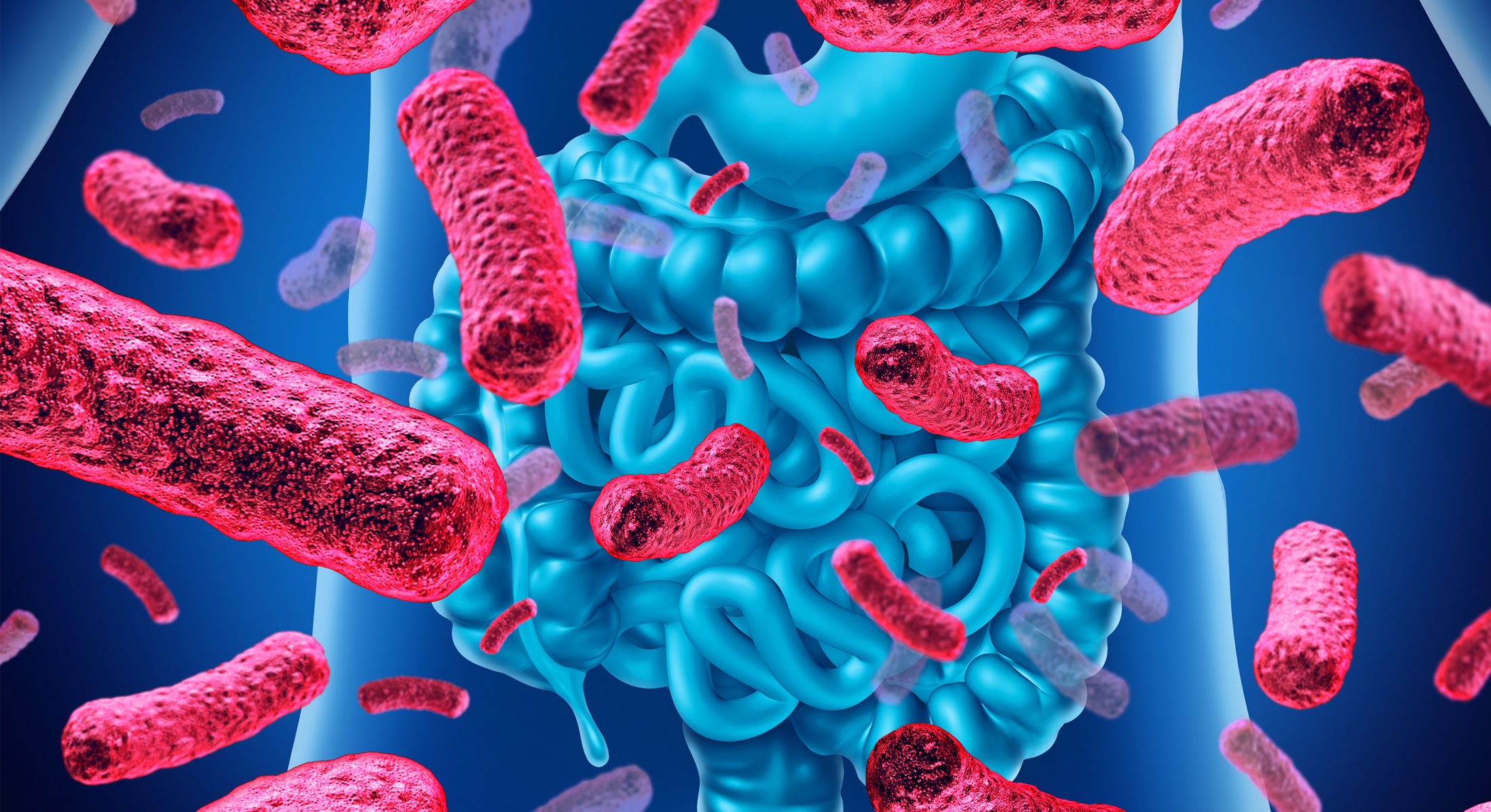Possible Side Effects of Probiotics
Taking
probiotic supplements has become something of a trend lately. While
there’s plenty of evidence of their
health benefits,
you may have heard some stories about unpleasant probiotics side
effects. Fortunately, these aren’t anywhere near as common or as
bad as they seem.
Probiotics
are a type of bacteria known as “friendly” gut bacteria – also
known as microflora – that reside in various parts of your body.
While most of these are in the gastrointestinal tract, microflora is
also present on your skin, in your mouth and other areas.
Numerous
studies have shown that the health of your gut microflora can provide
clues to your overall health and wellbeing.
Digestive
problems can be linked to imbalances in your gut bacteria, which in
turn can lead to other serious conditions such as food allergies,
behavioral disorders, mood changes, autoimmune disease, arthritis,
chronic fatigue, skin disorders and even cancer. That’s why taking
probiotics as a supplement has been touted as one of the most
effective ways to get your health back on track.
Probiotic
supplements are forms of living bacteria and yeasts that provide
health benefits when taken in liquids, powders or capsules. They can
also be eaten as probiotic
foods such
as like yogurt, kefir, sauerkraut, kimchi and miso.
What
you might not realize, however, is that probiotic supplements can
have some slightly unpleasant side effects at first! Although these
do pass and only affect a small proportion of the population, it’s
helpful to know what you’re in for when you begin a probiotics
regime.
1. Digestive Symptoms
Because
most of your body’s microflora lives in your gut, this is the area
that will be targeted most acutely when you take probiotics. Typical
symptoms may include some gas, bloating, cramps or just feeling a
little more ‘full’ than usual.
If
your probiotic contains a strain of beneficial yeast, you may also
experience a change in bowel movements. Some people also report
feeling thirstier. One study suggested that these symptoms occur
because the healthy new bacteria expand their territory in the gut,
colonizing the small intestine and colon.
Extra
gas may also be caused by bacteria-induced changes to your gut
motility or transit time. These alterations can sometimes cause
abnormal intestinal spasms or prevent your stomach muscles from fully
emptying the stomach of food you’ve eaten.
Although
only a minority of people experience these symptoms, it’s helpful
to know in advance. In fact, it’s also a good sign that the
probiotic is actually working!
Fortunately,
these symptoms usually subside after a week or two of taking the
probiotic. If you really can’t cope, try reducing your daily dose
to half that recommended on the label. You can then gradually
increase your dose over the following weeks. This allows your gut to
adjust to the new influx of bacteria slowly.
2. Amines in Probiotic Foods May Trigger Headaches
Headaches
and migraines have also been reported by some new probiotic users.
Although probiotic supplements don’t cause headaches, some foods
seem to trigger mild symptoms. This may be due to amines, a substance
created during the fermentation process. Foods rich in probiotic
bacteria and protein (such as kimchi, yogurt or sauerkraut) contain
small amounts of amines. The subtypes of amines include tyramine,
tryptamine, and histamine.
It’s
been found that large amounts of amines can overstimulate your
nervous system, causing a sudden increase or decrease in blood flow.
In some cases, this can lead to headaches or migraine. One study
found that reducing your intake of amines with a low-histamine diet
tends to correspond with a reduction of headache symptoms
It’s
also possible that a minor Herxheimer-like reaction could be to
blame. This occurs when bacteria or yeast in your gut die off in
large numbers. If you experience a die-off reaction[4] after
starting your probiotic regime, it can also because some of the older
bacteria within your gastrointestinal tract are dying off and
releasing some pro-inflammatory cytokines. This can cause oxidative
stress or the release of endotoxins. Fortunately, this phase should
pass once your body adjusts to the probiotic.
It
may help to keep a food diary while eating probiotic foods in order
to pinpoint the cause of your headaches. Keep drinking plenty of
water to flush any excess toxins out.
3. Adverse Reactions to Allergens
Those
with food intolerances or allergies may be more susceptible to
adverse reactions from probiotics. One of the most common reactions
is to the dairy content of probiotics.
Many
probiotic strains are derived from dairy and contain lactose, the
sugar in milk. However, studies suggest that the probiotic bacteria
in fermented and unfermented milk products can actually reduce the
symptoms of lactose intolerance.
Every
case is unique, and a minority of people with lactose intolerance can
suffer from gas and bloating when consuming probiotic strains like
Bifidobacterium bifidum when they begin their course. Although these
symptoms may dissipate, it’s advisable to switch to dairy-free
probiotics.
Those
with egg or soy intolerances may react to the presence of these
allergens in some products. Similarly, those who are sensitive or
allergic to yeast should avoid supplements that contain yeast
strains.
If
you have sensitivities or allergies to certain foods, check the label
on the product before purchasing.
Another
factor to consider is that many probiotic supplements also contain
prebiotic.
These are plant fibers that your body cannot break down, so instead,
your gut bacteria consume as ‘food’. The most common prebiotics
include lactulose, inulin, and various oligosaccharides.
Although
the fermentation process is usually beneficial to your gut bacteria,
these prebiotics can cause some extra bloating and gassiness. This is
not an allergic reaction as such, but can sometimes be enough to put
people off taking the probiotic.
4. Skin Reactions
Although
rare, there have been some reports of probiotics causing skin rashes
or mild itching.
A
review conducted in 2018 found that a small number of IBS patients
who took a probiotic to treat their symptoms developed an itchy
rash.[5] As a result, at least one patient dropped out of the
trial.
If
you begin a new probiotic supplement and find that your skin is
suddenly itchy, it’s likely to be a temporary response that will
pass within a few days. While the itchiness may be annoying, it’s
unlikely to become severe or debilitating.
One
of the theories for skin itchiness or rashes after taking probiotics
is that the bacteria are triggering an allergy. If you are allergic
to one of the added ingredients in a particular supplement – such
as egg, soy or dairy – your immune system may cause an inflammatory
response. This may also occur after eating fermented foods that
contain a high amount of biogenic amines such as histamine. These
responses are quite natural when a new bacterial species is
introduced to your gut. If you already have a histamine
intolerance or sensitivity, you may be more likely to end up with a
skin rash or itchiness.
5. May Contribute to Small intestine Bacterial Overgrowth (SIBO)
A
2018 study suggested that there may be a link between SIBO and
probiotic supplementation in people who regularly suffer from ‘brain
fog’.[6] It appears that the symptoms of these people improved
when they stopped taking probiotics and started taking antibiotics.
The
bacteria in your small and large intestines are usually somewhat
different from one another in terms of species and strains. Your
large intestine contains mostly anaerobic bacteria, which can grow
without oxygen. These bacteria survive by fermenting prebiotics, the
carbohydrates that cannot be broken down in the gut.
Small
intestine bacterial overgrowth SIBO occurs when bacteria from your
large intestine end up in your small intestine and start growing.
Symptoms are often mistaken for IBS because they include gas,
bloating, and diarrhea. Sometimes, SIBO can cause ‘brain fog’ and
short-term memory problems. In fact, SIBO is more common in those
with IBS.
Although
it’s not known what causes the bacterial overgrowth in the small
intestine, some researchers suggest it can be a result of sluggish
gut motility. This causes food to spend longer periods of time in the
gut, which in turn means more fermentation in the small intestin



Comments
Post a Comment